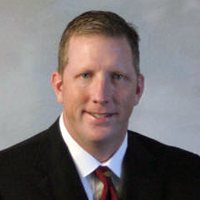Uncovering the Real Costs in Your Mutual Fund
Hidden costs could be holding back the returns on your investment portfolio. Here are three places investors should take a closer look at when evaluating mutual funds.

Profit and prosper with the best of Kiplinger's advice on investing, taxes, retirement, personal finance and much more. Delivered daily. Enter your email in the box and click Sign Me Up.
You are now subscribed
Your newsletter sign-up was successful
Want to add more newsletters?

Delivered daily
Kiplinger Today
Profit and prosper with the best of Kiplinger's advice on investing, taxes, retirement, personal finance and much more delivered daily. Smart money moves start here.

Sent five days a week
Kiplinger A Step Ahead
Get practical help to make better financial decisions in your everyday life, from spending to savings on top deals.

Delivered daily
Kiplinger Closing Bell
Get today's biggest financial and investing headlines delivered to your inbox every day the U.S. stock market is open.

Sent twice a week
Kiplinger Adviser Intel
Financial pros across the country share best practices and fresh tactics to preserve and grow your wealth.

Delivered weekly
Kiplinger Tax Tips
Trim your federal and state tax bills with practical tax-planning and tax-cutting strategies.

Sent twice a week
Kiplinger Retirement Tips
Your twice-a-week guide to planning and enjoying a financially secure and richly rewarding retirement

Sent bimonthly.
Kiplinger Adviser Angle
Insights for advisers, wealth managers and other financial professionals.

Sent twice a week
Kiplinger Investing Weekly
Your twice-a-week roundup of promising stocks, funds, companies and industries you should consider, ones you should avoid, and why.

Sent weekly for six weeks
Kiplinger Invest for Retirement
Your step-by-step six-part series on how to invest for retirement, from devising a successful strategy to exactly which investments to choose.
Most people invest in mutual funds because they're easy.
The fund manager does the research for you, so you don't have to spend a lot of time choosing investments or monitoring the fund yourself. You have the comfort of knowing someone else is worrying about diversification and the ups and downs of the market—usually for an affordable initial investment.
But, as with any business, running a mutual fund involves costs that are passed down to investors. Some are obvious; some are not. But you should understand them all because a fund with high costs has to perform better than a low-cost fund to generate the same returns.
From just $107.88 $24.99 for Kiplinger Personal Finance
Become a smarter, better informed investor. Subscribe from just $107.88 $24.99, plus get up to 4 Special Issues

Sign up for Kiplinger’s Free Newsletters
Profit and prosper with the best of expert advice on investing, taxes, retirement, personal finance and more - straight to your e-mail.
Profit and prosper with the best of expert advice - straight to your e-mail.
Sometimes it takes awhile for investors to realize the bite those fees and expenses are taking from their bottom line. Maybe a fund isn't performing as expected, and they just can't figure out why. When we sit down and take a look at what's going on, we usually can pinpoint the problems pretty quickly. And frequently it's one of three issues:
1. It's a proprietary fund, or there's some kind of incentive for the financial professional to sell it. Mutual fund companies often try to incentivize brokerage firms to sell their products by offering revenue-sharing agreements. If your financial professional is pitching a fund that has the name of his brokerage house or bank on it—or if it's a brand-name fund—there may be a higher commission involved. And that cost could be passed down to you, the investor, through fees. It also could mean you aren't necessarily getting a fund that was chosen with your best interests in mind.
As regulators continue to address this issue, disclosure statements should improve, but for now it's wise to ask your financial professional why he chose a particular fund and if a commission was involved. Or you may wish to take your portfolio to an independent fiduciary to be analyzed.
2. The fund has a high turnover ratio. A fund's turnover ratio represents the percentage of holdings that have changed over the past year, and it can give you an idea of how long a manager holds on to a stock. A low turnover ratio (20%) indicates a buy-and-hold strategy. A high turnover ratio (more than 100%) indicates a strategy that employs active buying and selling of securities. Each of those transactions has a cost, which will be passed on to the investor—and the more transactions there are, the more the costs build. There are also tax consequences for dividend income or capital gains. You likely won't find those costs in bold print in your paperwork, but an adviser can do the calculations and help you decide if you’re getting what you're paying for.
3. The fund is highly volatile. How fast and how far the value of a fund rises and falls can be a good indicator of the potential risk. When everything else is equal, a highly volatile fund has more risk than one with low volatility. It may get you a higher return, but that's likely because it's taking more risk than makes sense for your overall plan and goals. When you're retired and depending on your investments for income, for example, a sudden market downturn could be devastating if you have to sell at a loss. Your adviser can use the Sharpe ratio, developed by Nobel Memorial Prize-winning economist William Sharpe, to compare the return of a mutual fund with its volatility, and determine how it could impact your retirement. Getting an overall risk assessment is one of the most important things you can do to protect your portfolio.
Mutual funds are easy. But you're doing your future self a disservice if you aren't paying attention to what's happening to that investment or what it's costing you in the long-term. Take a look at your portfolio and ask yourself:
- Am I in a fund that's doing revenue-sharing? And, if so, am I sure it's the best fund for me?
- Is there a lot of trading going on? And am I seeing a better return because of that?
- What kinds of risks are this fund's manager or managers willing to take? And is that a fit for my timeline and personal risk tolerance?
All of these factors can be measured, and if there are problems, there are also solutions that can help lead you to a more abundant retirement.
Profit and prosper with the best of Kiplinger's advice on investing, taxes, retirement, personal finance and much more. Delivered daily. Enter your email in the box and click Sign Me Up.

Don Ross, founder and president at Ross Wealth Advisors, has more than 25 years' experience in the insurance and financial services industry. He has passed the Series 7 securities exam and holds a life insurance license in Ohio. Retired from the military after more than 20 years of service as a pilot in the Ohio National Guard, Ross lives in Upper Arlington, Ohio, and enjoys traveling, yard work and cycling. He and his wife, Joni, have three children: Judith, Ryan and Lance.
-
 Nasdaq Leads a Rocky Risk-On Rally: Stock Market Today
Nasdaq Leads a Rocky Risk-On Rally: Stock Market TodayAnother worrying bout of late-session weakness couldn't take down the main equity indexes on Wednesday.
-
 Quiz: Do You Know How to Avoid the "Medigap Trap?"
Quiz: Do You Know How to Avoid the "Medigap Trap?"Quiz Test your basic knowledge of the "Medigap Trap" in our quick quiz.
-
 5 Top Tax-Efficient Mutual Funds for Smarter Investing
5 Top Tax-Efficient Mutual Funds for Smarter InvestingMutual funds are many things, but "tax-friendly" usually isn't one of them. These are the exceptions.
-
 Social Security Break-Even Math Is Helpful, But Don't Let It Dictate When You'll File
Social Security Break-Even Math Is Helpful, But Don't Let It Dictate When You'll FileYour Social Security break-even age tells you how long you'd need to live for delaying to pay off, but shouldn't be the sole basis for deciding when to claim.
-
 I'm an Opportunity Zone Pro: This Is How to Deliver Roth-Like Tax-Free Growth (Without Contribution Limits)
I'm an Opportunity Zone Pro: This Is How to Deliver Roth-Like Tax-Free Growth (Without Contribution Limits)Investors who combine Roth IRAs, the gold standard of tax-free savings, with qualified opportunity funds could enjoy decades of tax-free growth.
-
 One of the Most Powerful Wealth-Building Moves a Woman Can Make: A Midcareer Pivot
One of the Most Powerful Wealth-Building Moves a Woman Can Make: A Midcareer PivotIf it feels like you can't sustain what you're doing for the next 20 years, it's time for an honest look at what's draining you and what energizes you.
-
 I'm a Wealth Adviser Obsessed With Mahjong: Here Are 8 Ways It Can Teach Us How to Manage Our Money
I'm a Wealth Adviser Obsessed With Mahjong: Here Are 8 Ways It Can Teach Us How to Manage Our MoneyThis increasingly popular Chinese game can teach us not only how to help manage our money but also how important it is to connect with other people.
-
 Looking for a Financial Book That Won't Put Your Young Adult to Sleep? This One Makes 'Cents'
Looking for a Financial Book That Won't Put Your Young Adult to Sleep? This One Makes 'Cents'"Wealth Your Way" by Cosmo DeStefano offers a highly accessible guide for young adults and their parents on building wealth through simple, consistent habits.
-
 Global Uncertainty Has Investors Running Scared: This Is How Advisers Can Reassure Them
Global Uncertainty Has Investors Running Scared: This Is How Advisers Can Reassure ThemHow can advisers reassure clients nervous about their plans in an increasingly complex and rapidly changing world? This conversational framework provides the key.
-
 I'm a Real Estate Investing Pro: This Is How to Use 1031 Exchanges to Scale Up Your Real Estate Empire
I'm a Real Estate Investing Pro: This Is How to Use 1031 Exchanges to Scale Up Your Real Estate EmpireSmall rental properties can be excellent investments, but you can use 1031 exchanges to transition to commercial real estate for bigger wealth-building.
-
 Should You Jump on the Roth Conversion Bandwagon? A Financial Adviser Weighs In
Should You Jump on the Roth Conversion Bandwagon? A Financial Adviser Weighs InRoth conversions are all the rage, but what works well for one household can cause financial strain for another. This is what you should consider before moving ahead.